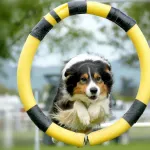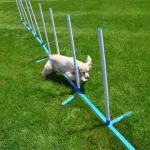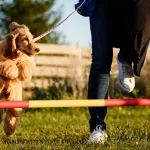Pet care
What Every New Puppy Parent Should Know ?

Proper socialization is essential for helping your puppy develop into a confident, well-adjusted, and friendly adult dog.
Bringing a new puppy into your home is an exciting and rewarding experience, but it also comes with important responsibilities, including socialization. Proper socialization during puppyhood is crucial for setting the foundation for a well-adjusted and confident adult dog. In this blog post, we’ll explore the puppy socialization checklist and why it’s essential for every new puppy parent to understand.
Understanding Puppy Socialization:
Socialization is the process of exposing puppies to a variety of people, animals, environments, and experiences in a positive and controlled manner. During the critical socialization period, which typically occurs between 3 weeks and 14 weeks of age, puppies are most receptive to new experiences and less likely to develop fear or anxiety towards unfamiliar stimuli.
The Puppy Socialization Checklist:
- Introduce to Different People: Expose your puppy to people of all ages, genders, and appearances, including children, seniors, and individuals wearing hats or glasses. Encourage positive interactions by offering treats and praise for calm and friendly behavior.
- Meet Other Dogs: Arrange playdates with well-socialized and vaccinated dogs to help your puppy learn appropriate social skills and body language. Monitor interactions closely to ensure they remain positive and avoid overwhelming your puppy.
- Explore Various Environments: Take your puppy on outings to different environments such as parks, sidewalks, beaches, and pet-friendly stores. Allow them to explore at their own pace while providing reassurance and encouragement.
- Expose to Different Sounds: Introduce your puppy to a variety of sounds they may encounter in daily life, such as traffic noises, doorbells, vacuum cleaners, and fireworks. Start with low-intensity sounds and gradually increase the volume as your puppy becomes more comfortable.
- Handling and Grooming Practice: Get your puppy accustomed to being handled and groomed by gently touching their paws, ears, mouth, and tail. Use positive reinforcement to associate handling with positive experiences and rewards.
- Positive Vet Visits: Visit the veterinarian regularly for wellness check-ups and vaccinations, making each visit a positive experience by bringing treats, toys, and praise. Allow your puppy to explore the vet’s office and interact with staff members in a calm and reassuring manner.
Proper socialization is essential for helping your puppy develop into a confident, well-adjusted, and friendly adult dog. By following the puppy socialization checklist and exposing your puppy to a variety of experiences in a positive and controlled manner, you can set them up for a lifetime of success.
Stay tuned for more puppy training tips and advice in our upcoming blog posts!




